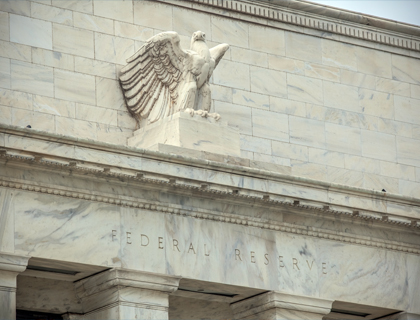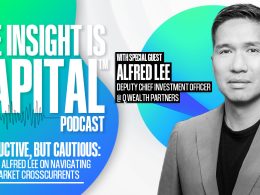by Joseph V. Amato, President and Chief Investment Officer – Equities, Neuberger Berman
They may discourage the fiscal reform and corporate investment that the economy needs.
Who doesn’t love a good stock market rally? We certainly do, but the key question we are asking ourselves is whether lower interest rates are really what this global economy needs.
Three weeks ago, markets signaled their approval for the “Powell Put.” Last week both the Federal Reserve and Mario Draghi of the European Central Bank (ECB) doubled down on that dovishness.
The Fed’s “dot plot” of projected interest rates sank downward. Almost half of the FOMC now expects at least one rate cut this year, and one member called for a cut last week. Its statement made clear the intention to “act as appropriate to sustain the expansion,” and dropped the key word “patient.”
Draghi had already boosted the markets by saying that “additional stimulus will be required” should a return to the ECB’s inflation target come under sustained threat. The central bank would “deliberate how our instruments can be adapted” to tackle that threat and consider “further cuts in policy interest rates” if necessary, he added.
The ECB’s refinancing rate is currently zero and its deposit facility rate is negative.
Responsibilities
I am not suggesting that the recent weakness in economic data is not cause for some concern. It is. The key question is whether lower rates solve the real problem.
Looser monetary conditions are generally stimulative. At this point in the cycle, however, I would question whether they will stimulate sustainable economic activity. More worrisome is that lower rates provide cover for governments to duck their fiscal responsibilities, allow for unproductive enterprises to remain afloat, disincentivize corporate investment and create powerful headwinds for the banking system (particularly in Europe).
The result can be less volatility in the business cycle, but sluggish growth, stagnating productivity, and low returns on equity.
Think back to the most recent period of rising U.S. GDP growth, from 2017 through 2018. That was not a period of central bank dovishness. Rather, the Fed continued its rate normalization policy by phasing out the remnants of quantitative easing. More importantly, in our view, corporations got a tax cut and regulatory policy became far less restrictive.
Beyond easing monetary conditions, the U.S. somehow needs to find enough political consensus to deal with longer-term fiscal issues such as Social Security and Medicare and immigration reform—not to mention getting that infrastructure program up and running. Europe similarly needs consensus on regulatory reform and corporate taxation, and a new economic model that balances the needs of its stronger and weaker countries. We believe solving these issues will go a longer way toward building business confidence, which will spur investment and lead to sustained productivity growth.
Lower interest rates will not deliver these things, in our view. As we have been saying for some years, governments have to do their job.
Sustainable Growth
To be fair, Draghi has been making the same point for years. Last week, perhaps looking forward to how history will judge his tenure at the ECB after he steps down in October, he pressed that point as hard as ever. Monetary policy tends to work best when it works in tandem with fiscal policy, he insisted, criticizing the fiscal tightening that followed the financial crisis.
Will governments listen?
Amid the “sugar high” of looser monetary policy, government bonds rallied last week, setting a new record for the amount of negative-yielding European debt. The U.S. 10-year Treasury fell to around 2%. Equity markets rallied, reflecting multiple expansion rather than any expectations of stronger earnings. As I said, everybody loves a rally.
Ultimately, however, it is difficult to see where the necessary political consensus for a fiscal and regulatory boost will come from. Just look at Germany. Europe’s biggest and most important economy is heavily geared to global trade, has decelerated alarmingly over the past 12 months and has tremendous latitude for a fiscal boost compared to its neighbors in the region, and yet it does nothing.
Without help from governments, lower rates and asset purchases are likely to gain less and less traction. They may be enough to keep this long cycle expanding, but we don’t believe they are enough to build the foundation for stronger, more sustainable growth, and they may even impede it.














